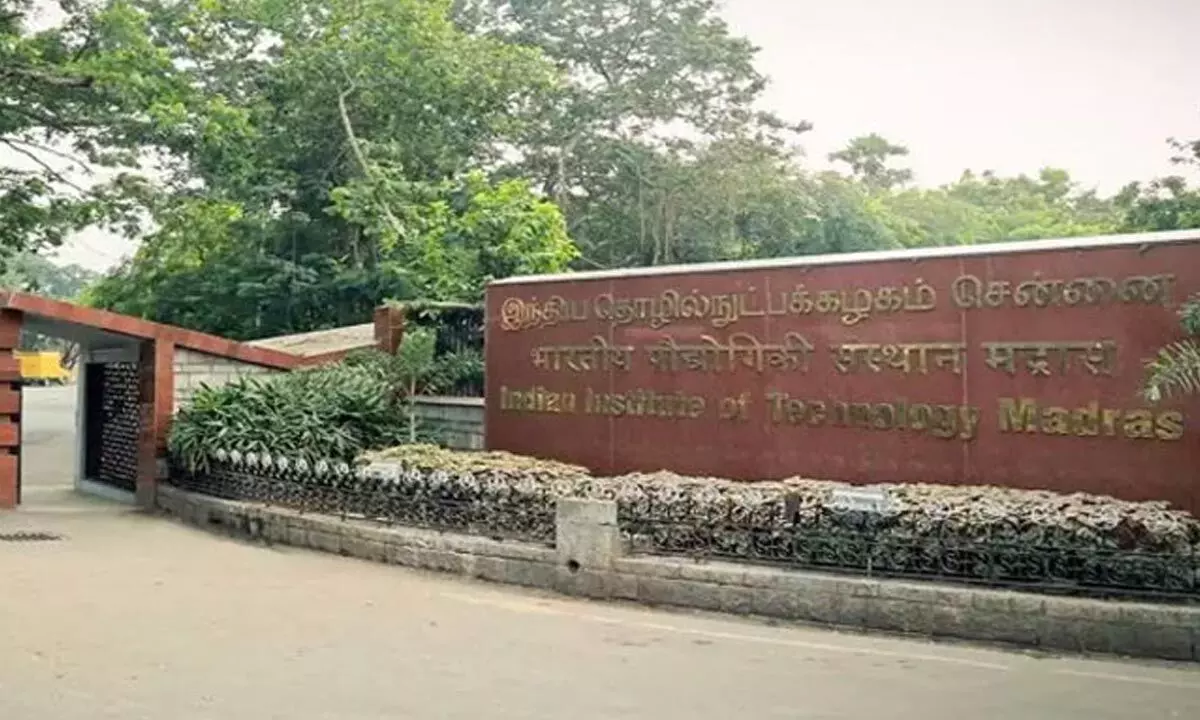Live
- Vijayawada: 503 nominations for LS, 2,705 for Assembly approved
- Guntur: 10.3 lakh youth enrolled as new voters in State
- BJP plans to do away with quota: CM
- Tirupati: YSRCP smells rat in independents galore
- CM changing goalposts, diverts attention from issues
- Attaining salvation: Breaking free from the cycle of life and death
- Quantum Entanglement: Exploring the Language of the Universe
- Modern Man and Moksha
- Bejan Daruwalla’s horoscope
- Vijayawada: NDA parties stage stir at Sectt for timely pensions
Just In
IIT Madras develops 1st India-specific AI model to determine foetus age


In a first, researchers at the Indian Institute of Technology (IIT) Madras have developed an Artificial Intelligence (AI)
Chennai: In a first, researchers at the Indian Institute of Technology (IIT) Madras have developed an Artificial Intelligence (AI) model that is specific to Indian population and can accurately determine the age of a foetus in a pregnant woman, in her second and third trimesters.
Accurate age of a foetus -- gestational age -- helps in providing proper care of pregnant women and also to determine precise delivery dates.
Currently, physicians in India determine the gestational age using a formula developed for Western population, increasing chances of error.
The new model called ‘Garbhini-GA2’ accurately estimates the age of a foetus for the Indian population, reducing error by almost three times, said the team of researchers, including from the Translational Health Science and Technology Institute (THSTI), Faridabad on Monday.
It is “the first late-trimester gestational age estimation model to be developed and validated using Indian population data”, they noted in the study, published in the peer-reviewed journal Lancet Regional Health Southeast Asia.
The new model can also improve the care delivered by obstetricians and neonatologists, thus reducing maternal and infant mortality rates in India.
The research is also part of ‘Interdisciplinary Group for Advanced Research on Birth Outcomes -- DBT India Initiative’ (GARBH-Ini) programme.
“GARBH-Ini is a flagship programme of DBT, and the development of these population-specific models for estimating gestational age is a commendable outcome. These models are being validated across the country,” said Dr. Rajesh Gokhale, Secretary, Department of Biotechnology (DBT), Government of India, in a statement on Monday.
“IIT Madras has been contributing towards solving healthcare problems at the grassroots and local level with the aim of enhancing public health in India. To this end, we are utilising advanced data science and AI/ML techniques to build tools to predict unfavourable birth outcomes. The first step towards this is to develop accurate GA models that perform significantly better than currently used models designed using Western populations,” added Dr Himanshu Sinha, a Coordinator at the Center for Integrative Biology and Systems Medicine, IIT Madras, and who led the data science work for this research.
Garbhini-GA2 used three routinely measured foetal ultrasound parameters, and was developed using GARBH-Ini cohort data documented at Gurugram Civil Hospital, Haryana, and was validated in an independent cohort in South India.
Once validated in prospective pan-India cohorts, this Garbhini-GA2 can be deployed in clinics across India, improving the care delivered by obstetricians and neonatologists, thus reducing maternal and infant mortality rates in India, the researchers said.
“Improving the gestational age accuracy is a critical component of the broader goals of the GARBH-Ini study, which aims to reduce the adverse pregnancy outcomes,”said Dr Shinjini Bhatnagar, Principal Investigator of the GARBH-Ini programme and a Distinguished Professor, at THSTI.

© 2024 Hyderabad Media House Limited/The Hans India. All rights reserved. Powered by hocalwire.com






